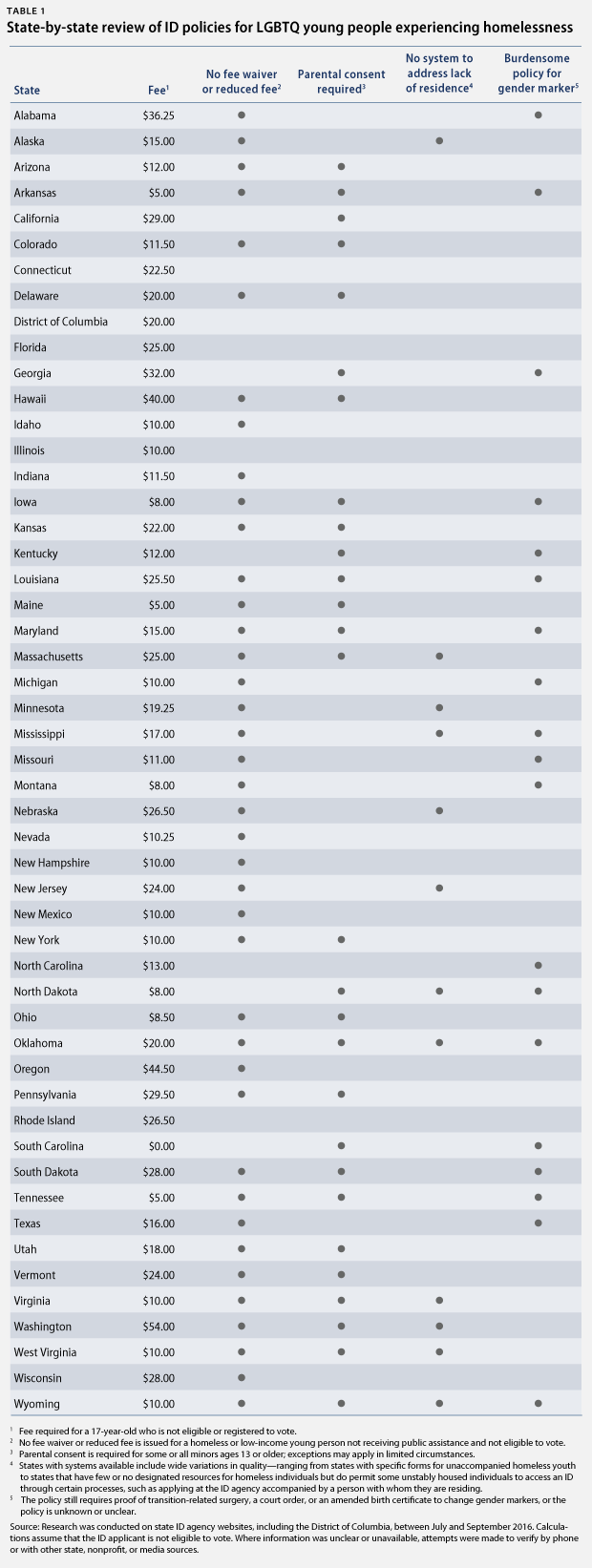Lesbian, gay, bisexual, transgender, and queer, or LGBTQ, youths are significantly overrepresented among young people experiencing homelessness in the United States. Bullying and harassment in schools; discrimination on the job and in rental markets; and histories of physical and sexual violence place these young people at a higher risk of housing instability. One barrier these youths face in securing a better future is obtaining state-issued photo identification, or ID, cards—which may be required for job applications, opening financial accounts, and even accessing public libraries. Yet, without any reduced-cost options or fee waivers, the cost of obtaining an ID card remains prohibitively high in many states. In addition, states may require parental approval to issue an ID card to a minor, which may not be an option for many LGBTQ youths who are experiencing homelessness because of family rejection.
State-issued identification empowers young people to take control of their lives and overcome homelessness, and states should adopt clear policies improving access to ID cards for LGBTQ youths experiencing homelessness. The table below updates information about ID card fees and policies reviewed in an earlier Center for American Progress report for all 50 states and the District of Columbia.

Shabab Ahmed Mirza is a Research Assistant for the LGBT Research and Communications Project at American Progress. Steven Soto is a former intern for the LGBT team at the Center. Caitlin Rooney is a Research Assistant for the LGBT Research and Communications Project at the Center.